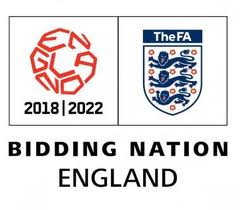With little more than two months until FIFA decides on the venues for the 2018 and 2022 World Cup finals, an international survey reckons that England’s 2018 bid is leading the way – but only just, as the race reaches the final straight, the Russians are coming.
 World Football Insider is a US-owned sports website which runs the World Cup Bid Power Index to examine the relative strengths and weaknesses of the nine bids for the 2018 and 2022 World Cups.
World Football Insider is a US-owned sports website which runs the World Cup Bid Power Index to examine the relative strengths and weaknesses of the nine bids for the 2018 and 2022 World Cups.
WFI’s last survey was conducted in May, but the latest version, published tonight, reflects the merits of bid campaigning at the World Cup in South Africa and FIFA’s verdicts on the bids following its series of summer inspection visits.
WFI reckons that England is still in the lead in the bid race but Russia are now just one point behind in their rankings.
Given that the World Cup hosts are selected by the FIFA’s executive committee, such a fine margin, if accurate, simply indicates that the race is too close to call.
Across 10 WFI categories, England scores 68 out of 100 possible points (up 3 points). Russia follows with 67 (up 5 points), with the United States on 66 (up 5 points) and Qatar on 65 (up 2 points). Holland-Belgium and South Korea both have 61 points, with Australia a point adrift. Spain-Portugal and Japan’s bids have sub-60 scores.
“After impressing FIFA inspectors, Russia’s campaign is gaining momentum – and the influence of Prime Minister Vladimir Putin cannot be underestimated in the final weeks of lobbying,” WFI says.
The WFI Bid Power Index is based on analysis and first-hand contact with the bid nations, including interviews with bid leaders and information and figures from each of the bid launches.
WFI’s “health warning” says, “The rankings are not meant to predict the outcome of the FIFA vote on December 2, but to show the merits and drawbacks of the bidding nations at regular intervals before the decision.”
The 10 categories scored are: bid operations/leadership; wow factor and unique selling points; relations with FIFA Executive Committee members; cost and funding resources; government and public support; international PR; venue plans; security; transport and accommodation; and legacy.